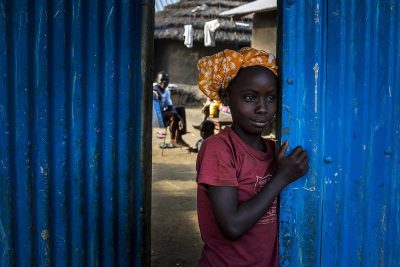By
Peter Louis
South Sudan on Sunday marked the fourth anniversary of the International Day of the Girl under the global theme ‘The Power of the Adolescent Girl: Vision for 2030’, with a call to UN agencies, governments and other stakeholders to redouble efforts to empower adolescent girls as part of the Sustainable Development Goals.
Adolescent girls globally are among the most marginalised and neglected groups. Many are subjected to child marriage, unwanted pregnancies, sexually transmitted diseases and gender-based violence, all of which have lifelong consequences. During times of conflict and disaster, adolescent girls are among the most vulnerable and at risk of exploitation, abuse, rape and other forms of violence.
Though many gender disparities have decreased for young girls and adult women over the years, gaps continue to widen for adolescent girls. Millions of adolescent girls are excluded from quality education, access to media and information technology and without information about puberty and reproductive health.
The statistics tell part of the story. An adolescent girl in South Sudan is three times more likely to die in childbirth than complete primary school. Only seven per cent of girls in the country currently complete the eight-year primary school cycle while only 1.6 per cent of over 420,000 girls between the ages of 14-17 years, who complete primary school, enrol in secondary school (Education Management Information System (EMIS) 2013).
“The Girls’ Education strategy that was recently launched is already our roadmap to empower our girls to make sure they come out of the troubles they are facing and ensure that we increase enrolment, retention and completion among our girls and to equip young girls who are out of school with the necessary life skills,” said the Deputy Minister of Education, Science and Technology,” Honourable Bol Makueng Yuol.
According to UNICEF, adolescent girls need to be recognised as a distinct group where services and programmes are targeted to the age-specific needs of girls from 10 to 19. In addition, interventions must address the disadvantages adolescent girls face including harmful practices by families; communities and policymakers that perpetuate gender discrimination by assigning adolescent girls to sexual, domestic and caregiving roles.
“Investing in the health and education of adolescent girls is one of the best investments in the future – for everyone,” said UNICEF’s Representative in South Sudan, Jonathan Veitch. “An educated girl is less likely to get married early, is more likely to have her own children educated and kept healthy, and she is better equipped to break what is often a vicious cycle of poverty.”
With age-specific investments, interventions, policies and programmes, adolescent girls can be empowered to forge a new future for themselves and the world. These efforts must include investment in education, skills training and access to information technology. In addition, menstrual hygiene management, HIV education and reproductive health services are essential. Programmes and investments must also combat attitudes and behaviours – child marriage, early pregnancies and sexual violence – that endanger girls and impede their empowerment and progress.
The Government of South Sudan with support from UN agencies and other partners are continuously trying to empower adolescent girls by developing policies and by providing cash transfers to girls to offset the cost of education and capitation grants to schools that can increase enrolment, retention and completion for girls in order to reduce the gender disparity.
The International Day of the Girl Child on 11 October was first introduced in 2011 by the United Nations as a day for promoting the rights of girls, and addressing the unique challenges they face.



No Comments Yet!
You can be first to comment this post!